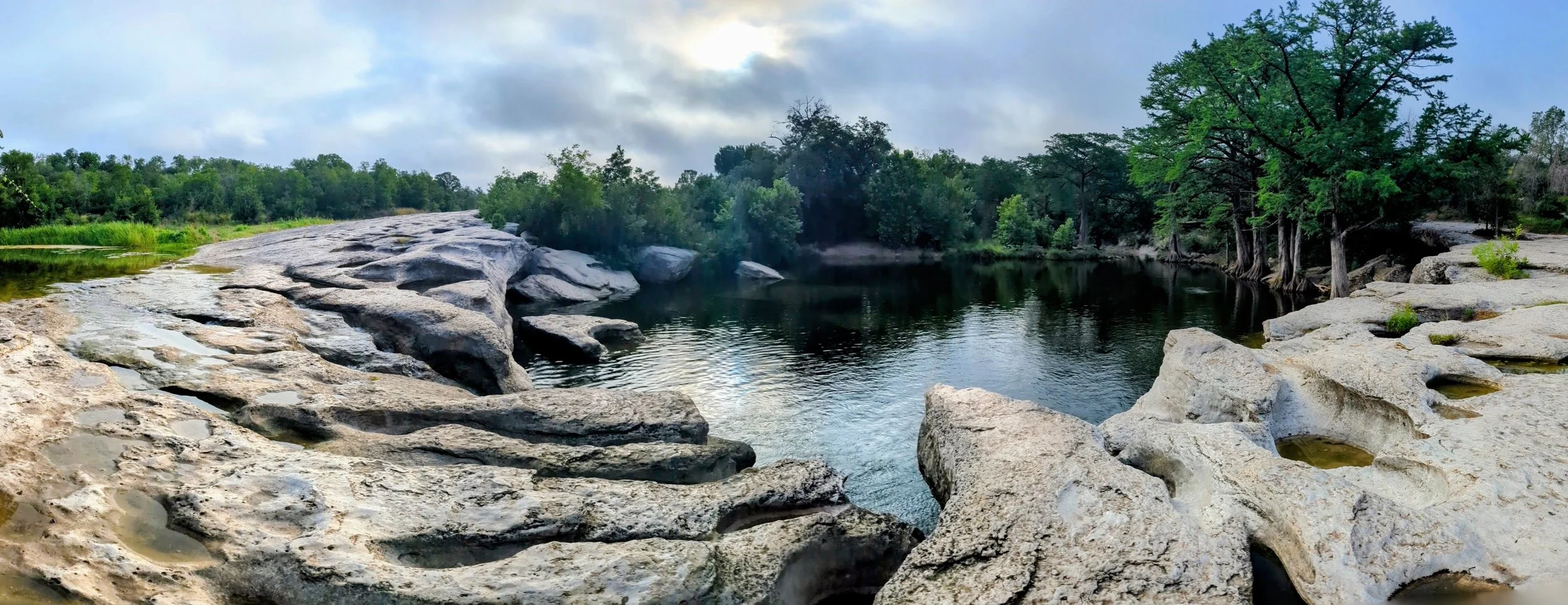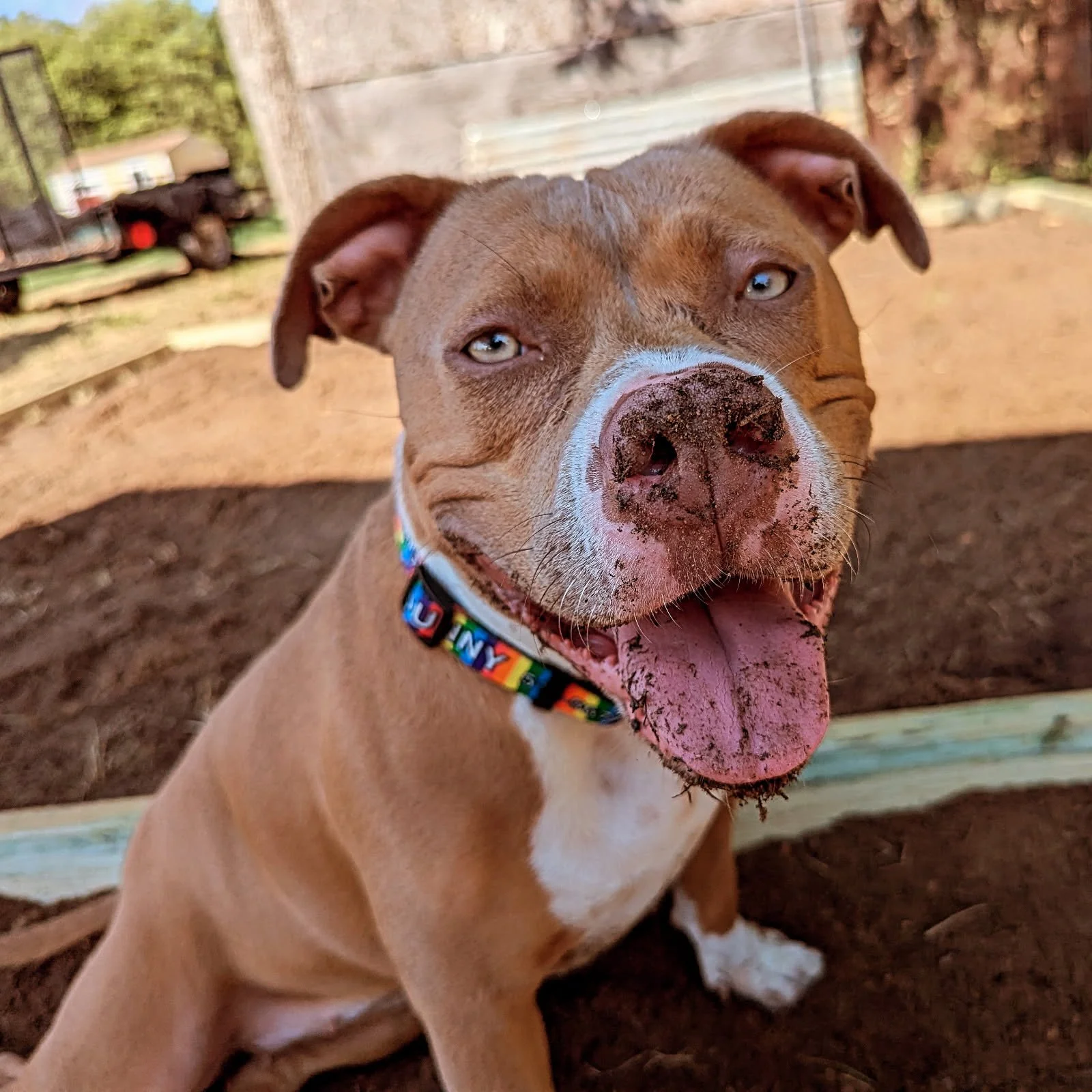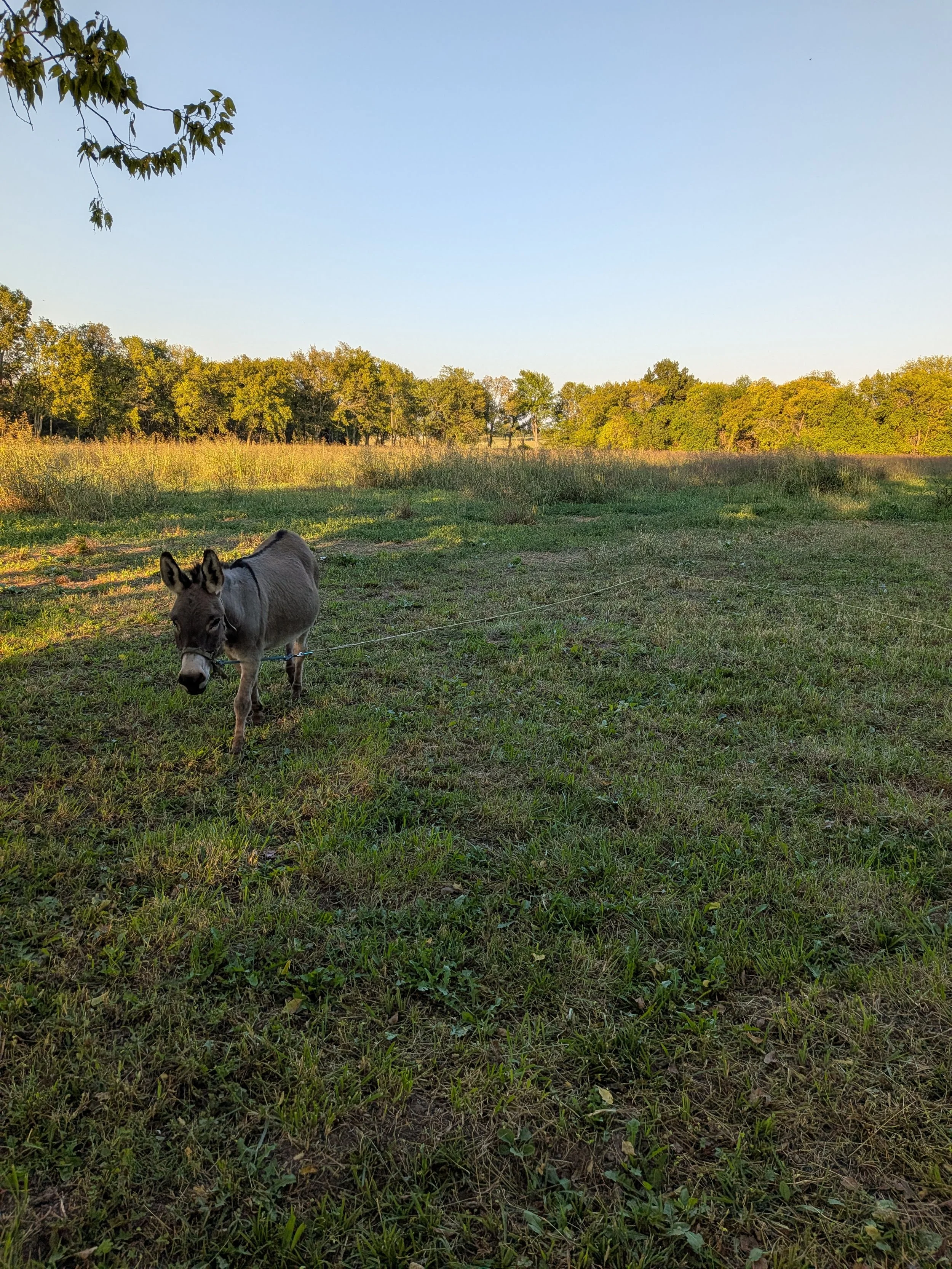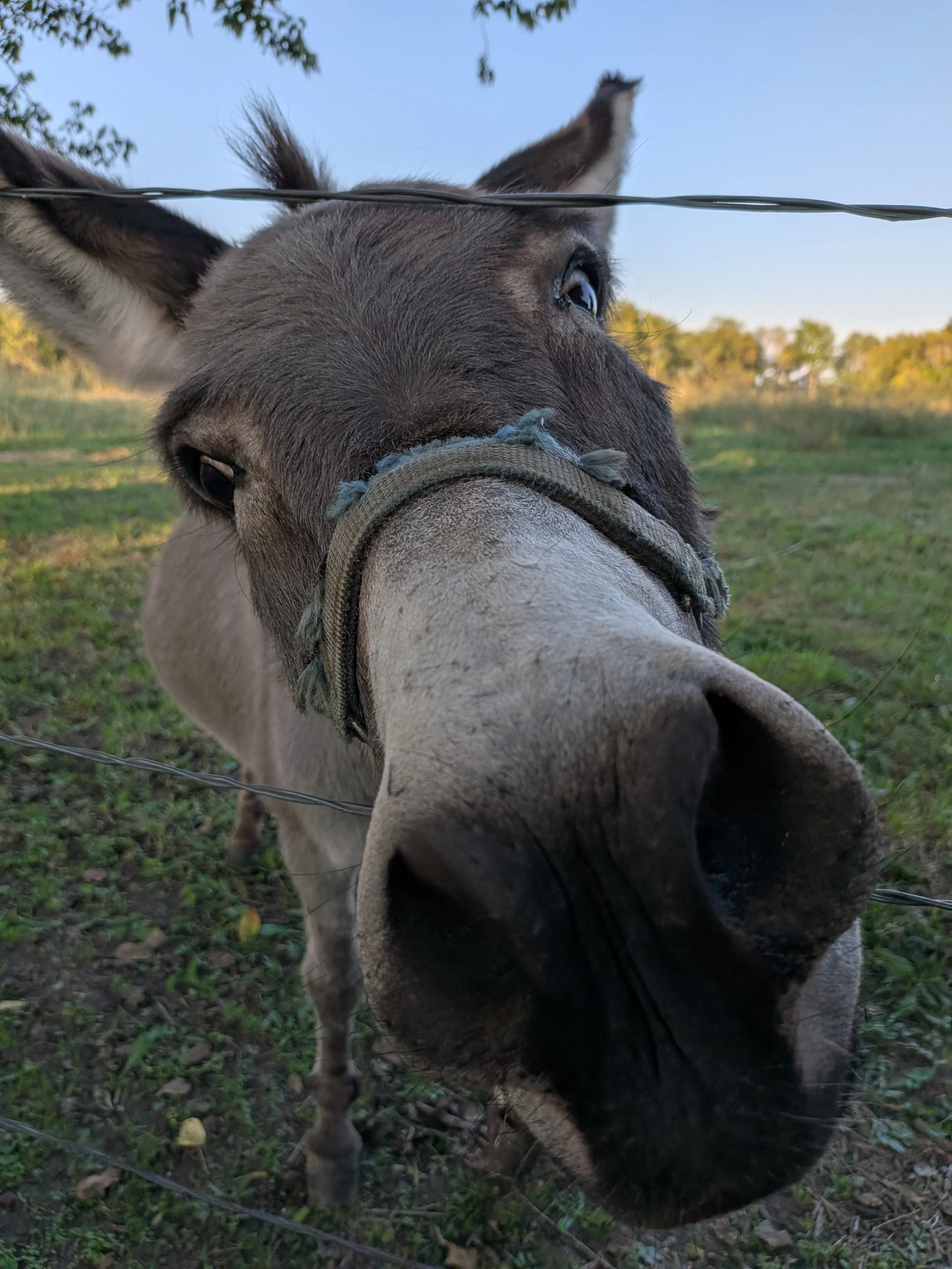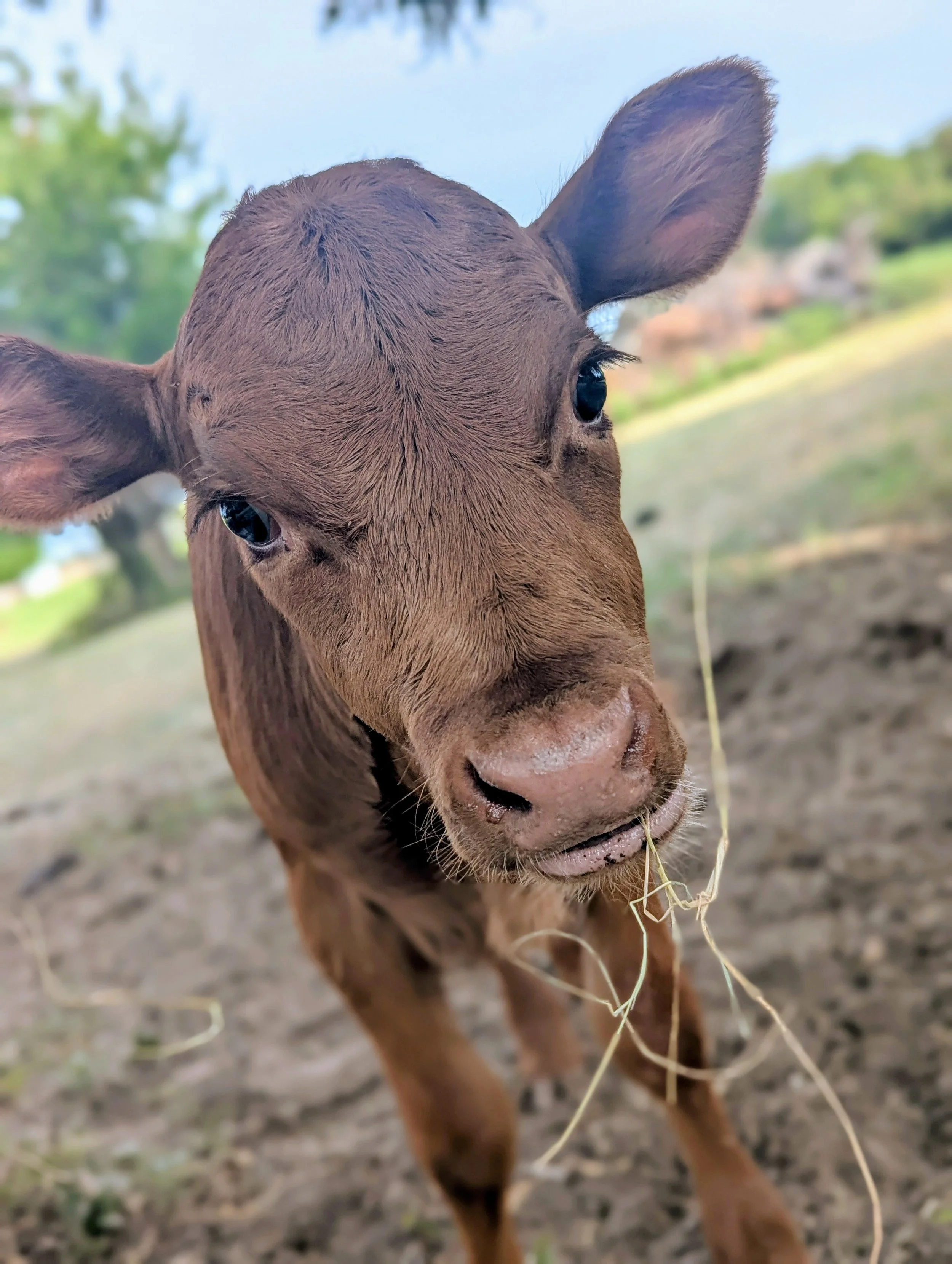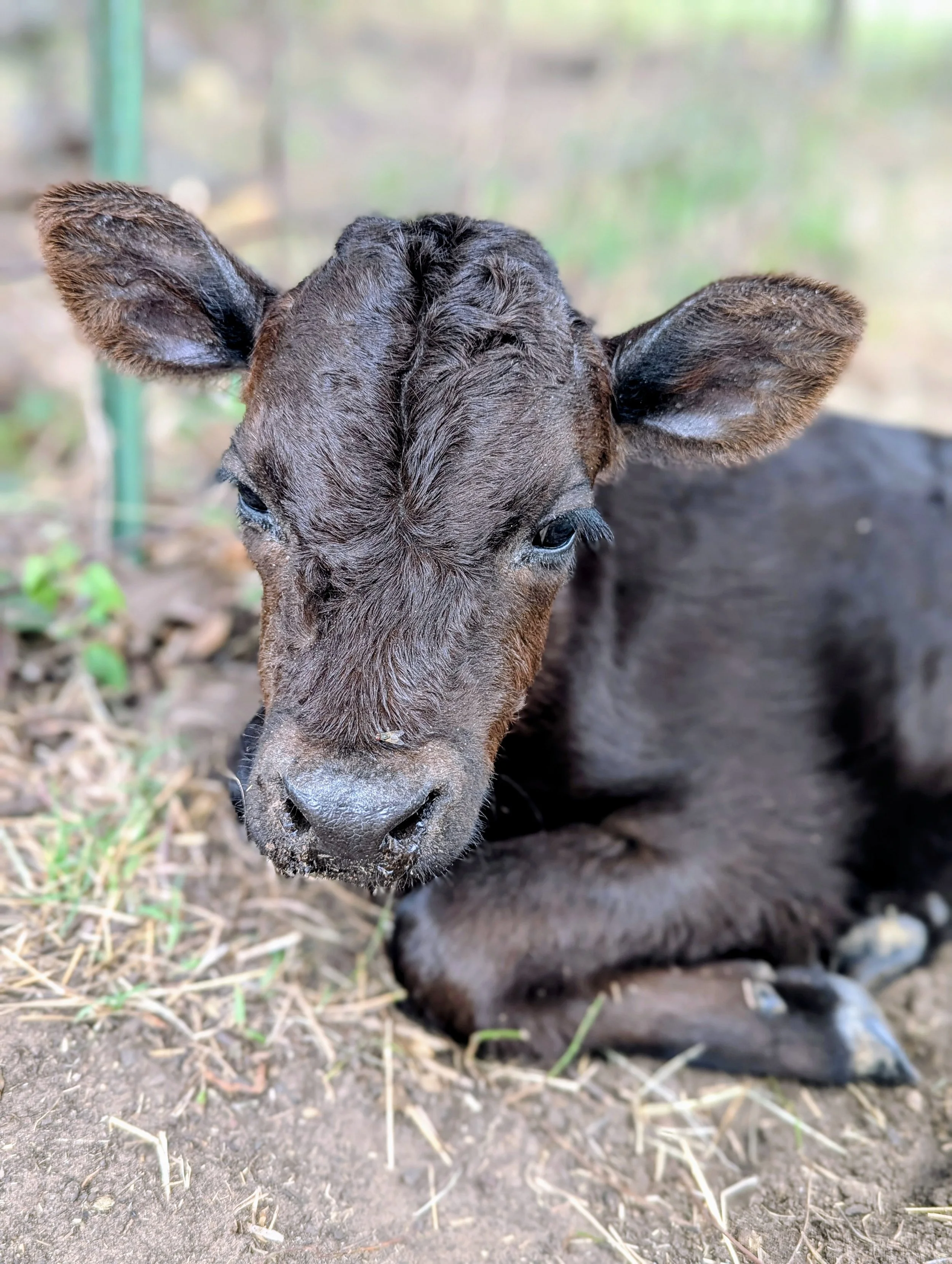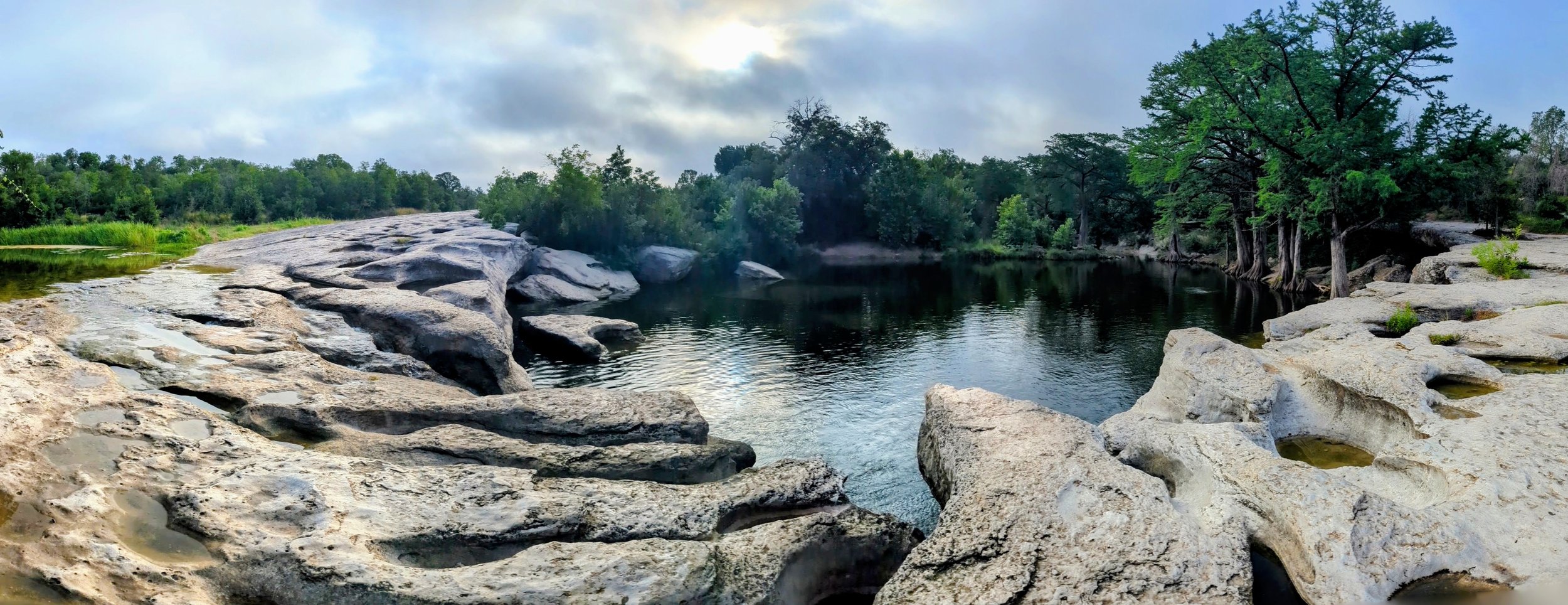I’m too mad to think of a title
The federal government is lying to you. They just executed another person in broad daylight—an ICU nurse for veterans who was trying to help a woman ICE was shoving to the ground and attacking. Five masked agents pepper sprayed him, shoved him to the ground, took his legal firearm from his waist (where are all my 2nd amendment and don’t tread on me folks?) and shot him 8 times? I couldn’t count all the shots.
We existed without ICE before 2003. We can exist without them again. They have gone rogue. They are not following protocol or laws. They are terrorizing neighborhoods and making entire communities unsafe. And they are not providing any evidence that they are achieving their stated goal: arresting violent criminals. Because that was never their goal. Just ask Stephen Miller.
This is not normal. This is not okay. If you are not paying attention and condemning this, you are part of the problem. If you are not demanding that your senators refuse to give ICE more money, and work to abolish them, you are no different than the people who stood by in the US and watched slave hunters drag escaped slaves from Northern states back to the South. You are no different from the people in 1930s Germany who watched their neighbors being dragged from their homes and said nothing.
It’s here. It’s happening. Not everywhere all at once. But it’s ramping up. It’s gaining steam. It’s coming soon to a city near you. And unless we can shame Republican lawmakers and members of the Trump administration into digging deep and finding their humanity, or realizing where we are on the slide towards fascism, the only thing that’s going to stop this out of control federal overreach is states standing up to them. That means civil war. Local cops joining with citizens to stand up to power hungry thugs. I don’t want that. I don’t think anyone wants that. But it’s coming unless we shake these people out of their fucking stupor and make them realize that they are the last line of defense between living in a free society and going to fucking war.
I know it’s hard to process. I don’t want to face it either. I want to stick my head in the sand and try to make myself believe that it’s all going to be okay. Unfortunately, I’m too well-versed in history to make myself believe that lie. Authoritarianism doesn’t happen overnight. It’s not a set of decrees that announce nefarious intentions. It chips away little by little, banking on the fact that most people aren’t paying attention or are too scared to say or do anything.
I can’t stop thinking about all the students I have taught over the years, who had members of their families who were undocumented. Some came here illegally, some legally. Some were working their way through immigration courts. They all wanted a better life for their kids. And their kids just wanted to come to school to learn, to make friends, to grow up in safety and in love. I cannot get Liam Ramos’ face out of my head. I taught so many babies who look just like him. I can hear them giggling and see them dancing in my library. I can feel their sweet hugs and fist bumps and high fives. Liam was ripped away from his family and is now traumatized in a detention facility here in Texas. He will start to deteriorate very quickly and who knows if he will ever be the same. And why? Are all of his caretakers violent criminals who needed to be taken off the streets?
I am so devastated and so enraged for him and his family, for the family of Renee Good and now Alex Pretti. For all of the families who are living in terror, afraid to leave the house, to go to school or work or to the grocery store. Afraid in their own homes that at any time someone could kick down the door, drag them out, slam them into the ground, cuff them, and disappear them to another state or another country with no due process.
EVERYONE IN THIS COUNTRY IS ENTITLED TO DUE PROCESS.
EVERYONE IN THIS COUNTRY IS ENTITLED TO DUE PROCESS.
EVERYONE IN THIS COUNTRY IS ENTITLED TO DUE PROCESS.
It doesn’t matter if you snuck in, if you stole something, if you’re a drug addict, if you murdered 20 people. Due process is what separates us from complete and total lawlessness and tyrannical governments.
Please wake up. Please stop pretending like things are normal. Domestically and internationally. People here can’t afford their rent, can’t afford to buy homes and food. Healthcare costs have skyrocketed. People have to choose between medicine and food. Trump is incinerating the rules-based international order as we speak. Our allies are looking elsewhere and we are aligning with dictators and war criminals.
Things are not going to get better unless we start demanding that they get better. We must demand courage from people who are in positions to stand up to Trump and his cronies. That means politicians, people in the military, the FBI, etc. People are going to have to start defecting and fast or this shit is going to keep spiraling out of control. Talk to your friends and family. Try to persuade them to call their representatives. Donate to mutual aid where you can. Go out into the streets. Boycott companies who support ICE and this administration. Speak up. Speak out. Before it’s too late.
Stalactites and Outlaws
October 2nd: I was at my folks’ house loading Virgie because I was planning to leave the next morning for the first leg of my month-long road trip. I had just finished messing with the jack to make sure I could access the spare tire if need be (it’s fully tucked up under the carriage and has to be lowered down), when I looked across the front yard to see my naughty pittie, Sunny, chewing on something. For most dog owners, this might be a casual annoyance. For me, it's an immediate panic because this dog will ingest large, non-edible items like they’re milk bones. Exhibit number one: the vet bill from her abdominal surgery after she ate a giant chunk of an oversized tennis ball. smh
I ran over to her and realized she was chewing on a pair of leather work gloves. Okay, well maybe she just shredded them a liiiiittle bit…..
Ohhh shiiiiiit!
A huge part of the cuff was missing! Now, mind you, I had just been at the vet with her that morning to have a lump checked out before I left for my trip. She was a very good girl and the lump was not concerning, so we were riding high, unaware that vet trip number two was a mere 5 hours away. My parents, saints that they are, gathered up my pup and took her back to the vet, so I could stay and keep prepping for my trip. An hour and some change later they returned with multiple pieces of leather glove that she had thrown up, as well as a very large, hard, black, spherical piece of mystery plastic. I guess I’m glad she ate the glove, so we could discover the object that would surely have been another surgery or perhaps her downfall? Never a dull moment with this sweet chaos machine.
An aside: I signed up for Harvest Hosts, which is an RV membership with almost 10,000 locations across the US. You pay a yearly membership fee and then you can stay for free for a night at any of the locations. They just ask that you purchase something from the host. On my month-long journey, I stayed at seven HH locations: two farms, a horse ranch, a cidery, two wineries, and an eco-industrial village. The only down side is no showers, so I have to intersperse my HH stays with state or national parks or friends. No shower in my van down by the river.
Leg one: Argyle, TX to Webb City, MO. 363 miles. ~6 hours
I made my way to the first farm in Missouri and was immediately greeted by a small donkey named Hee Haw. This was auspicious. How could it not be? I gave him all the pets, got Virgie set up, and chatted with Abbi, who lives on the farm with her husband and two daughters. She used to be an educator, but left and started her own t-shirt company. You’ll be shocked to hear that we talked for well over an hour, and I got some hot goss about the softball coach being a total weirdo. It was the homecoming football game that night and the dance the next day, and Abbi’s eldest daughter came into the shop needing assistance with her hair for the game. I asked her about the dance and she excitedly showed me a photo of her dress. This made me miss my high school babies. The rest of the night was uneventful, and as I was trying to get to CT by October 7th, I hit the road the next morning.
Leg two: Webb City, MO to Lebanon, IL. 309 miles. ~4 hours and 45 minutes
This was going to be my shortest travel day, so I took my time getting on the road, and you better believe when I started seeing billboards for Redmond’s Candy Factory, I added a stop. I’d really like to know how much money this candy factory spends on billboards. I have never seen so many billboards along a stretch of road as I did on I-44. I was going to stop after I saw the first couple. I saw like 80 more before I arrived. Do they have billboard rent control in Missouri? Anyways, the candy shop was everything I hoped it would be. An explosion of color and texture and whimsy. A million taffy flavors, rock candy, cow tales, fudge, etc. I tasted some fudge, bought some choco rocks, and walked over to the Redmond’s sister store, WORLD’S LARGEST GIFT STORE!! It was a massive warehouse with every imaginable tchotchke except a fucking Redmond’s sticker. Fail. But they did have a dope 1940 navy blue Cadillac Limousine. Back on the road.
Behold! A new onslaught of billboards! This time for Meramec Caverns. Maybe more than the candy shop, if that’s possible? I looked up the caverns and discovered that the last tour began at 4:00 PM. Mapped it….there at 3:45 PM. Hell yeah! If you have never been down in caverns, get thee there, stat! Caverns are dope. And the legend of Meramec Caverns goes like this: During the Civil War, the Union army was using the cavern as a gunpowder factory. Word got out about this secret gunpowder lair and a group of Confederate soldiers stormed the underground factory and massacred all the Union soldiers. Apparently, Jesse James and his brother Frank were part of this Confederate militia and after the raid, they spent time exploring the caverns. Later when they started robbing banks and trains, the tea is they hid out in the caverns, so the sheriff blocked off the entrance and posted up outside knowing they would have to come out eventually for food. However, the brothers followed an underground stream in the cave and found a different exit. Stalactites and outlaws is a fun story, but there isn’t really any proof that James and his gang hid out there. But you know who DID hang out there? Lassie, when she filmed an episode where Timmy got lost in the cave, and she rescued him. What a good girl.
I left the caverns feeling refreshed and inspired by millions of years of mineral deposits creating a magical underground world.
Merry Christmas Eve to all who celebrate. I spent the day with my parents, baking and watching A Man on the Inside, a delightful, heartwarming Netflix show starring Ted Danson and created by the same people who brought you The Good Place. Wishing you all a happy holiday season and peace and good fortune in the new year.
More adventures coming soon!
Speaking truth to power
I’ve sat at my computer multiple times trying to write something coherent in the almost two weeks since Charlie Kirk’s murder. I was sitting in a hotel room in Austin when I saw the video pop up on my phone. Like most things these days, my first thought was that perhaps it was a deep fake. I realized very quickly that it wasn’t. My initial reaction was selfish—“God, I just want to go to sleep for two weeks and wake up when the discourse is over.” I already knew what odious filth was going to permeate the online and political spheres. And I knew I wouldn’t be able to ignore it. I would want to. But I wouldn’t. And I didn’t. I’m exhausted.
Aren’t y’all exhausted?
I watched the press conferences and read all the breaking news headlines. I listened in horror as elected officials declared war on all Democrats and anyone who has left leaning political positions. Thankfully I don’t travel in circles where people I know celebrate political violence, but I heard about those accounts as well. I was holding it together pretty well until I saw the reason behind the initial thought that the shooter had been trans—because the people analyzing the bullets had seen the headstamp “TRN” which marks the ammunition as the product of the Turkish manufacturer Turan and had thought that it must mean TRANS. Again, I wished for weeks long slumber.
I know many people have heralded Utah Governor Spencer Cox for his press conference calling for a different path forward, and I agree with that sentiment. I agree that political violence begets political violence. But Cox also said this: “For 33 hours, I was praying that, if this had to happen here, that it wouldn’t be one of us. That somebody drove from another state, somebody came from another country. Sadly that prayer was not answered the way I hoped for. Just because I thought it would make it easier on us if we could just say, hey we don’t do that here.”
This is dangerous. This is the kind of thinking that pits white, conservative Americans against everyone who isn’t a white, conservative native-born citizen. Cox was hoping for an “other,” because it’s easier to dehumanize someone who doesn’t look like you or practice the same religion as you or vote the same way you vote.
Over the last week and a half, I’ve been reading a lot about political violence in this country. I looked into the last 17 incidents that have taken place to see what I could learn. I’ll treat Jan 6th as a separate incident simply because it involved so many people, so out of the last 16 incidents of political violence:
All 16 were perpetrated by men
All by American citizens
13 were white men
Some of these men had liberal ideologies, some had conservative ideologies, some were anti-government, anti-semitic, misogynistic. Many had mental health issues or believed in conspiracy theories. But the thing that connects all of them is that they were so radicalized against an “other” that they were moved to commit violence.
Recently, Jon Favreau, one of the founders of Crooked Media and Obama’s former head speech writer, responded to Kirk’s murder. He said in part:
“I've seen people equate the harm that comes from hateful words or repressive policies with the harm that comes from extinguishing another human life. I've heard people argue that because America has always been a violent country, maybe we're getting closer to the point where political violence is necessary in the face of an authoritarian regime. After all, we fought a violent revolution to win our independence. We fought a violent civil war to end slavery. Maybe if enough Germans had engaged in political violence before Hitler's fascist regime took power, we could have avoided World War II. I want to persuade you that this is horseshit.
Targeted assassinations and acts of political violence are not like wars fought with armies. For one, they are rarely successful in bringing about anything but more death, disorder, and repression. I would bet that the tens of millions of Americans who have died in war and the families they left behind would have traded anything for one last chance to fight for a political solution instead. Dr. King was absolutely right when he told us that violence never brings permanent peace. It solves no social problem. It merely creates new and more complicated ones.
King's civil rights strategy wasn't rooted in pacifism, but nonviolence. There's a difference. Nonviolent resistance is an active political force. It's also difficult and risky. John Lewis and the people who joined him on that bridge in Selma knew there would be a good chance they'd get their heads bashed in. But they also knew that those images might convince the people watching at home to support their cause. And they did. And that's because nonviolence is a political strategy designed to persuade, to win the perpetual battle for hearts and minds. It is the foundation of democracy. And over the last hundred years, it has been far more effective than violent conflict in bringing down repressive regimes. It's not even close.
I keep hearing people say there's no place in this country for political violence, which, sure, but it's more than that. The very purpose of politics is to figure out a way to live together without violence. The killer said, some hate can't be negotiated out. Sure, maybe that's true. But just because politics has failed in the past to prevent violence, just because it seems to be failing now, doesn't mean that we should give up on it. That we should give up on speaking and acting and fighting in a way that represents our best attempt to change people's minds. To bring the rest of the country a little bit closer to our point of view.”
I agree with Jon, but in order to change people’s minds, we have to be honest about what we’re facing in this moment.
I’ve been reading historian Heather Cox Richardson’s book Democracy Awakening, and she has reminded me that the targeted and precise dehumanizing rhetoric from conservatives started long before Donald Trump entered the fray. I’m not talking about pre-Civil War or even the Reconstruction era when racism and dangerous rhetoric were overt. Just take a gander at the Red Scare or the Southern strategy. If you tap into people’s fears (whether those fears are warranted or not), you can whip people into a frenzy about “the other.” Bad actors don’t need a pretext to justify taking action against “the other,” but they are always on the lookout for one. They start with rhetoric, but if one person or event gives them a reason, they will run with it ad infinitum.
During the Red Scare, the hunt for communists led to raids and deportations with no due process. It also whipped up the Lavender Scare, where thousands of gay people were discriminated against and harmed. The Southern strategy used racist tropes to divide people in the South and appeal to racist white voters. LBJ said of the strategy “If you can convince the lowest white man he’s better than the best colored man, he won’t notice you’re picking his pocket. Hell, give him somebody to look down on and he’ll empty his pockets for you.” Later in 2005, Ken Mehlman, the chair of the RNC, apologized to the NAACP for “trying to benefit politically from racial polarization.” It was intentional. It’s always intentional. Look at the propaganda created in 1930s Germany to dehumanize Jews, or ironically, the rhetoric around Palestinians as terrorists to justify the genocide in Gaza. And here, more recently, rhetorical attacks on women, the LGBTQ community, immigrants, black and brown people, government officials, non-Christians.
Trump and his ilk are just the next in a long line of power hungry men who exploit difference for their benefit. They aren’t interested in solving problems. They don’t care about making people’s lives better. They lack empathy. Any issue that can redound to their benefit is on the table. Chaos is a ladder, right? Heather Cox Richarson writes that, “Nixon's media handlers vowed to reach voters by emotion rather than reason. Voters are basically lazy, one wrote. Reason requires a high degree of discipline, of concentration. Impression is easier. The emotions are more easily roused, closer to the surface, more malleable.” She goes on to claim, “When anti-government gangs marched on Charlottesville at the 2017 Unite the Right rally, they were the logical outcome of the right-wing militancy that the anti-New Dealers had tried to cultivate in 1934 to bring down FDR. The ensuing decades of violence were nurtured by bullies who justified their actions with a right-wing political ideology.”
So that’s it. That’s what we’re facing. A long line of bullies and puppet masters who sit in their positions of power and do everything they can to convince people to hate everyone who isn’t a native born white Christian. It’s the blood and soil rhetoric of Nazi Germany come to our shores. And it has captivated far too many people in America. Even before Charlie Kirk’s death, Trump, Republicans, and the MAGA base were reveling in the white nationalist statements and actions of ICE and in the power grabs and quashing of free speech across the country. But after his death, the fervor has ratcheted up to a fever pitch. Look no further than white nationalist Trump advisor Stephen Miller’s speech at Kirk’s funeral where he said:
“The day that Charlie died, the angels wept, but those tears have been turned into fire in our hearts. And that fire burns with a righteous fury that our enemies cannot comprehend or understand…We will defeat the dark. We will prevail over the forces of wickedness and evil. They cannot imagine what they have awakened. They cannot conceive of the army that they have arisen in all of us. Because we stand for what is good, what is virtuous, what is noble. And to those trying to incite violence against us, those trying to foment hatred against us, what do you have? You have nothing. You are nothing. You are wickedness. You are jealousy. You are envy. You are hatred. You are nothing.”
Doesn’t seem like he’s talking about Tyler Robinson, does it?
Miller also said that there is, “a vast domestic terror movement. And with God as my witness, we are going to use every resource we have at the Department of Justice, Homeland Security, and throughout this government to identify, disrupt, dismantle, and destroy these networks and make America safe again for the American people. It will happen, and we will do it in Charlie's name.”
It’s really hard to be a deep thinking, reflective person during this hellscape of a timeline. It’s hard to stomach that everyday Americans who are pushing back against the rise of authoritarianism are being told that our protest is the cause of the violence and the division. Let me be clear: It is NOT dangerous rhetoric to describe what you see happening with your own eyes, to describe the actions of people in power who are behaving like dictators, angling for authoritarian power grabs. What IS dangerous is to tell those people they can’t describe what they are seeing because in describing those actions they are radicalizing people against those abusing their power.
I don’t know where we go from here. I don’t know how to convince those who have fallen under the spell of the Republican party, of Trump, to open their eyes. I don’t know how to convince them that Trump and his goons will never make things better for them. That wiping out vast swaths of institutional knowledge is dangerous. That while they look to liberals and leftists as their enemies, Trump, his family, and his cronies are raking in an unthinkable amount of money and consolidating power in truly alarming ways. I don’t know how to get them to be rational or to find their empathy. I don’t know how to convince them that diversity is interesting and not something to recoil from. How do we convince them?
Some days I want to give up on politics, give up on this country, accept that the American experiment is over. But then my rational brain takes over, and I realize what a short-sighted and selfish feeling that is. People have been fighting injustice in this country since before its inception. They have given their lives to the cause. They were exhausted, too, but found joy in small things—things that buoyed them to fight another day. They leaned on their loved ones and took heart from others in the fight. I am grateful for American citizens who are standing up for the rights of immigrants, for the doctors and humanitarians in Gaza, for the people on the flotilla trying to break the aid blockade, for the law firms and universities who refuse to capitulate to the bullies, and for the everyday people who speak truth to power even when it means putting their safety on the line.
I’m heading out in Virgie on October 3rd for a month long trip up through Missouri, Illinois, Ohio, and Pennsylvania to Connecticut and then onto NY, Maryland, Virginia, North Carolina, Tennessee, and Louisiana, and I promise my next post will actually be about van life; but in the meantime, please enjoy this photo of Roxy and Sunny giving Jay and Silent Bob energy (according to Larissa) and this video of a baby bull chewing on my shirt.
We mustn’t look away
Before the 2024 election, I posted a plea on FB to anyone who might be considering voting for Trump or sitting out the election. In that plea, I addressed the genocide taking place in Gaza, our government’s complicity in the genocide, and how things would potentially get worse under a Trump presidency. I’m not here to speculate what might be different if Kamala were currently the president. I’m here to discuss a response I received to my post, and a podcast episode that helped me crystallize my position on what is happening in Israel and Gaza.
For context, here is a snippet of my post: “To those who are abstaining from voting for Kamala because of the Middle East and Gaza, I'll just say this. I am more horrified by what's going on than I have been by probably anything I have seen in my lifetime. I am watching in disbelief and filled with a sense of rage and hopelessness at the genocide that is taking place before my eyes. It is a genocide being carried out by a man who is desperate to stay in power, lest he face prison time on corruption charges, and so he is beholden to the far right members of his coalition. It is also a genocide that is being carried out with US weapons, which is unconscionable. October 7th was a horrifying terrorist attack and I'm devastated for the hostages and their families and the families of those who were killed, but the response has included so many war crimes that I've lost count.”
Here is the response I received: “Calling this war a genocide is an insult to REAL genocides and their victims. Bibi is many things -- almost all of them bad -- and he deserves to rot in jail -- but genocide is not one of his crimes. See, when you throw 'genocide' to the air of the world, you cast blame not only on the leadership. You are also -- and more importantly -- falsely accusing my brothers and sisters defending their country. And I will not stay silent. Sure, the people of Gaza deserve better life and prosperous future. But this phase of the conflict is something they, as a collective, brought upon themselves, much like 1945 Germans. And I'm am glad the Biden AND Kamala get it.”
My response: “I'm certainly not throwing the word genocide around lightly. I'm basing my use of that term on the internationally agreed upon definition: the crime of genocide requires that a perpetrator kill, seriously harm, or inflict conditions of life calculated to bring about the destruction of a group, in whole or in part, with the intent to destroy the group as such. The University Network for Human Rights conducted a review of the facts established by independent human rights monitors, journalists, and United Nations agencies, and found that Israel’s actions in and regarding Gaza since October 7, 2023, violate the Genocide Convention.
I agree that Israel has a right to defend itself, but Hamas, not innocent Palestinians, were responsible for the terrorist attack. Many of the dead weren't even alive to vote for Hamas in 2006 and those who have protested against Hamas have been arrested, beaten, or killed. The number of innocent people who have been displaced again and again and again and bombed and starved since October 7th is staggering, not to mention that there is nothing left for people to return to.”
His final response: “The number of casualties has nothing to do with intent. Your sources are biased at best (UNHR? Go look at their track record in the region and beyond. UN agencies? I hope you don't mean UNRWA who employed active Hamas terrorists, UN Women which refused to acknowledge systematic sexual and gender-based crimes during October 7, or UNRC which has condemned Israel more than resolutions passed against Iran, Syria, North Korea, China, Cuba, and Venezuela combined).
This war is a tragedy, much like any other war. Israel has invested more efforts than any country in the history of warfare -- certainly urban warfare -- in reducing non-combatant casualties. This is also backed by hard data (ratio of 1 to 1-2 vs. 1 to 2-9 in previous conflicts, per some studies). The destruction of life and civic infrastructure is staggering, but it matches the nature of the enemy being so deeply integrated into the civic life and infrastructure, with rocket launchers in schools, command bunkers below hospitals, attack tunnels under homes and ammunition stashes under cribs. Terrible war? Definitely. Genocide? Definitely not.”
His views did not change my stance, and I’m certain mine did not change his. I don’t know if the subsequent months have done anything to shift his perspective, but I do know that MANY people and organizations who were hesitant to use the G word in November of 2024, have begun to use it now. Which brings me to The Ezra Klein Show episode, “When Is It Genocide?” If you want to listen to two people much smarter than me discuss this topic in a very nuanced way, I suggest you just stop reading and go listen to the episode. But if you don’t like podcasts or don’t have an hour and 45 minutes at your disposal, here are my takeaways and how they relate to the above exchange. It’s about a 10 minute read from here.
In the episode, Klein interviews Philippe Sands, a lawyer who specializes in genocide cases and teaches at Harvard Law and University College London. But before he begins their discussion, Klein lays out the key facts since October 7, 2023:
-There are a little over 2 million Gazans; the death toll there is equivalent to 2,500 9/11s
-Gaza is the size of Detroit; Israel has dropped over 100,000 tons of explosives there
-70% of all structures, including homes, schools, and hospitals have been damaged or destroyed
-Intentional blockade of food and aid for months, resulting in famine, people dying of hunger, people being shot at aid distribution sites because they are desperate for food
-Israel refuses to let journalists or independent inspectors in
Which brings Klein to ask, “Almost two years after Oct. 7, what is the point of this siege?” It certainly can’t be to get the Israeli hostages back. They are being bombed and starved alongside the Gazans. Many Israeli ex-security officers signed onto a letter stating that Hamas is no longer a strategic threat to Israel. So why does this war continue? Why does the Israeli military continue to block aid and starve the people of Gaza?
Klein explains that the reason he has avoided using the word genocide is because “there is an imprecision at its heart.” The imprecision stems from the gap between the legal definition of the word and the colloquial understanding of the word. Him and Sands spend much of their time discussing the history of the creation of the legal concept of genocide and the ways in which it has been litigated since its inception. Klein acknowledges that the power of the word genocide is rooted in the Holocaust (not the legal definition of the word), and he worries that, “If Israel becomes widely seen not just as the state born of a genocide but a state that then perpetrated one, it will forever transform the meaning of the Jewish state.” He’s talking about that transformation as if it’s something that might happen in the future, but I think we’ve crossed the rubicon already.
I should insert a caveat here that both Klein and Sands are Jewish. They begin their conversation with a discussion about Raphael Lemkin, the Polish lawyer (also Jewish) responsible for coining the term and the legal concept of genocide. Fun fact: Lemkin was fluent in 9 languages and could read in 14. He was interested in creating international laws that protected groups of people from other people or from states that would harm them. During the early 1900s before the concept of human rights law even existed, Lemkin spent years researching mass atrocities. He barely escaped Europe during WWII, fleeing to the US, but he lost 49 family members to the Holocaust. During his time in Europe and even after he fled in 1939, he collected Nazi decrees and ordinances and analyzed them for underlying objectives and intentions. He discovered a pattern of behavior that involved identifying people by their affiliation with a group and then placing restrictions on their employment, where they could live, access to education, ability to use their language, etc. Eventually you get to the camps and the extermination, but Lemkin considered every part of that process a genocide.
After discussing Lemkin, Klein and Sands shift to another man, Hersch Lauterpacht, an important figure in the development of international human rights law. Both Lauterpacht and Lemkin assisted at the Nuremberg Trial, but from different perspectives—Lauterpacht argued on behalf of individual rights and Lemkin on behalf of group rights. I’m not going to go into detail here, but Nuremberg was the first time leaders of a nation were being tried at an international level, so there were literally no international crimes on the books with which to charge the perpetrators. Ultimately, the statute that was created included war crimes, crimes against humanity, and the crime of aggression. Genocide was mentioned in the indictment as a subhead of war crimes, but it did not make it into the statute. The main focus of the trial was the crime of waging an illegal war, not the extermination of entire groups of people. Obviously, inventing a crime and then charging people retroactively has its issues, but that’s a whole other can of worms that I’m not going to open here. Another not so fun fact: many Southern senators were worried about the inclusion of genocide because they thought it would be invoked against the US for the extermination of the Native Americans and the widespread lynchings that took place in the south. I can’t even begin….
Lemkin was devastated that genocide was not included in the statute or the judgement at Nuremberg, but he continued lobbying and finally succeeded in 1948 when the Convention on the Prevention and Punishment of the Crime of Genocide was born. That definition is more strict and has a higher bar than Lemkin conceived of: “Any of the following acts committed with intent to destroy, in whole or in part, a national, ethnical, racial or religious group, as such: (a) killing members of the group; (b) causing serious bodily or mental harm to members of the group; (c) deliberately inflicting on the group conditions of life calculated to bring about its physical destruction in whole or in part; (d) imposing measures intended to prevent births within the group; (e) forcibly transferring children of the group to another group.” Lemkin wasn’t interested in proving intent; his focus was on actions and consequences.
Klein and Sands delve into the legal definition of genocide, how it has changed over time, and the gap that exists between the legal definition and the definition that most people think of when they think of genocide. They discuss the semantics of it all and the breakdown of intent and when and how that is provable. But ultimately, what stuck with me after listening to the episode, is that the debate that asks is it a genocide or is it “simply” a war crime or a crime against humanity, isn’t useful. Sands talks about how in popular understanding, genocide is the crime of all crimes, but in international law, genocide isn’t the crime of all crimes. The argument about the hierarchy between genocide, war crimes and crimes against humanity takes away from the horrors being committed and allows perpetrators to claim that what’s happening isn’t so bad because it’s not a genocide.
At one point Sands says, “I’m not focused on whether it’s [Gaza] a war crime or a crime against humanity or a genocide, which is a distraction from the real issue. It is utterly appalling and unjustifiable, and it should not be happening. And these debates about whether to characterize something as X or Y or Z are not helpful because they distract us from the horror that is happening and that is unfolding before our own eyes.” I agree. It shouldn’t matter what we label atrocities or whether or not the intention was to destroy a group of people. Is the group being destroyed? Are the horrors persisting? Then whatever you want to call it, people and governments should be doing everything they can to stop it.
I applaud the young people in Israel who are burning their draft orders, who refuse to be complicit in what is happening to the Palestinians. I wish we were seeing more defections from the IDF. I wish more American politicians would stop accepting money from AIPAC and vote to stop sending arms to Israel. We should be sanctioning Bibi and the members of his cabinet who conflate Hamas with the Palestinians. Other nations should be doing the same. I am happy to see nations like Ireland, France, Spain, and the UK announcing their recognition of Palestinian statehood, but that’s not enough. The people running the Israeli government are homicidal maniacs committing terroristic acts behind the guise of self-defense. They should be isolated and taken to their knees until they capitulate.
Which brings me back to the response I got on my FB post. The thing that struck me about his comment was his anger that using the term genocide meant that I was impugning his brothers and sisters for defending their country. But I guess I don’t see the distinction between calling it a genocide or a war crime or a crime against humanity. If you are a member of a military, voluntary or not, and the leadership of your country is asking you to commit atrocities, and you commit those atrocities, you are complicit. You can’t hide behind the notion of, “I was just following orders.” That’s how we got the Holocaust. At one point in the episode, Klein says, “watching a structure of law built by Jews in their moment of absolute weakness and vulnerability destroyed by them in some way as they have become stronger and more state bound — it’s a historical tragedy, irony, strangeness that’s almost too much to bear.”
I agree. But it’s happening. And we know what the consequences are when people look away.
Anyways, here are some cute pictures of baby cows I’m taking care of if you made it all the way through that.
cognitive dissonance in the dumbest timeline ever
It feels self-indulgent to write about or think about anything other than the genocide in Gaza unfolding before our eyes, or the masked men who are kidnapping people away from their communities and detaining them without due process, and then in some cases deporting them to torture prisons or countries they’ve never been to. I guess probably a lot of people I know and love (because I know and love a lot of compassionate, empathetic people) are feeling the same way. How are we supposed to go to the grocery store or mow the lawn or go to work or drink water, much less find joy in spending time with friends and family, when these horrors are being perpetrated with our tax dollars and only a handful of our politicians are doing anything about it? It feels uncomfortable to be comfortable or to experience feelings of contentment or happiness because holding ideals like fairness and justice and goals of emotional and mental well-being are in conflict with our current climate.
Maybe this is why so many people choose to look away? Protect their peace? But then those same people venerate historical figures who fought against injustice or tyrannical governments. I recently read The Book Thief, and one of the things that stood out to me about the bravery of Hans, Rosa, and Liesel in their hiding of Max, was the constant level of discomfort and anxiety that hung over the house and even their movements and actions outside of the house. They sacrificed their peace because it was the right thing to do, the just thing to do. But what if the Hubermanns lived in LA in 2025? Would they take their undocumented nanny or gardener or housekeeper into their home to prevent them from being deported? Or would they be too distracted watching their programs or their TikToks? Would they stay willfully ignorant in order to protect their peace?
I don’t really mean to cast broad aspersions; I’m just working through feelings of helplessness, rage, and despair. I long for a world where everyone turns off the tv, puts their phones away, and gets uncomfortable until something changes. But I don’t know—maybe even a monoculture wouldn’t be enough to mobilize a mass of people large enough to effect that change. I continue to be grateful for the people who refuse to look away; people who record or try to stop the kidnappings; for lawyers and judges standing up for due process and the rule of law; for the few politicians calling for the US to stop sending money and arms to Israel; and for the humanitarians who are putting themselves in harm’s way to try to provide relief in Gaza and other war torn places.
I recently traveled in Virgie across vast swaths of Texas to the Orilla Verde recreation area about an hour north of Santa Fe. I camped by the Rio Grande and hiked in the Sangre de Cristo Mountains. The weather was perfect, the views stunning. And then I spent time back in Santa Fe with one of my oldest friends, Will, and his wife Cameron. We mostly spent time catching up and laughing and swapping book recs, but on my last day in town, we went to the International Folk Art Market. The IFAM just turned 21 and to celebrate, they invited 142 artists from 57 countries to share their crafts and their commitment to sustainability, women’s empowerment, and cultural preservation. It was music, art, and food from all around the world. We saw Afghani rugs called kilims and Afghani pottery made by an artisan who fled the Taliban in 2021. Polish mobiles called pajaki or spiders of straw which are believed to have magical powers that scare away demons and bring in good luck. Large, colorful sculptures by Kenyan woodcarvers, made entirely of trash. A Ghanaian man named Kwame, who went from begging on the street to founding a shoe company that employs other craftsmen who may have ended up on the streets like him. The shoes are handcrafted with beautiful kente cloth embellishments. We sat on the cool grass, shared a dosa, and watched little kids run around and eat snow cones. To close out the market, six Drepung Loseling monks performed a Tibetan environmental cleansing and purification puja or prayer.
When I try to hold the horrors of this world and the beauty of this world in my one human heart, it feels too overwhelming. I guess Death from The Book Thief had it right when he said, “I am constantly overestimating and underestimating the human race…how the same thing could be so ugly and so glorious, and its words and stories so damning and brilliant…I am haunted by humans.”
the sun shone all the while
A year ago, I was supposed to be on the road in a little RV that a friend had lent me. It seemed like so many things had aligned for this opportunity to become a reality, and I just needed to take a little time to iron out some details. Then life happened, as life is wont to do. But in May of this year, I purchased the new love of my life, Virgie—short for Virginia Woolf and her seminal essay, “A Room of One’s Own,” which argued that women need space, both literally and figuratively, to think and create. Virgie is a beaut. A Ford Transit conversion van with everything I need to travel, explore, and write.
But I’m getting ahead of myself. Let’s travel back in time. A year ago, almost to the day, I moved out of the house I had lived in for 9 years and tried to remain calm as 4 tenants moved in to rent my home. A month earlier, I submitted my resignation at Decker Elementary, where I had been a librarian for 2 years. And in June of 2022, I spent my last day on campus at NYOS, where I taught middle and high school ELA for 9 years and where I had been raised up as a teacher. Add to that my other teaching endeavors in Montessori and college, and I was closing in on 15 years as an educator. 15 years of struggle, self-doubt, grit, tears, laughter, learning, wins and loses, and support from new friends who became family. Over the years, my friends listened patiently to my rants of frustration about the education system and my musings about leaving, but I continued to go back year after year. When I finally decided that I needed to step away, it still took me years to actually pull the trigger. Why so long?
Guilt.
Any teachers reading this will know what I mean. When you are called to educate and raise up other people’s kids, it’s a drive that comes from a place of deep caring and a profound sense that you will have a positive and long lasting impact on some young people’s lives. Regardless of how difficult the job is, that feeling sticks in your craw. Even the thought of leaving the classroom sent waves of guilt washing over me.
It’s built into the system as well. Administrators, superintendents, and politicians love to wax poetic about how important teachers are, how we make such a difference. They’re not wrong, but after hearing it for so many years but seeing no tangible evidence that we might make money commensurate with our worth, or be given more support, more time, etc, it starts to feel like the game is rigged, the accolades hollow.
I’m still processing the grief. Most days in the year since I left, I feel relieved I’m no longer in a classroom. Some days, the grief hits me like a truck. On those days, it’s hard not to wonder if I made the right choice. I miss so many things about working with my students. I miss being goofy and laughing with them. I miss the days where something clicks for the first time and you see their eyes light up. I miss the days they come in crying or upset and need a shoulder or advice. I miss the hugs and the notes and celebrating their successes. I’m so grateful I was able to spend the bulk of my professional career connecting with and learning from young people.
Initially when I decided to leave, I said things like, “I’m just taking a sabbatical,” or “I’m not saying I’ll never go back into a school.” But in this past year, something has crystallized for me, and I feel pulled in a new direction—one that prioritizes movement, exploration, and creativity. My friend Michael said to me recently, “Being a teacher is just who you are — you are a teacher whether you're in the classroom or not. I know you had guilt about leaving, but I think this journey will only bring you closer to serving that purpose in new and better ways, even if you’re not in a classroom. Because you're a whole person, not just a teacher. Reaching this point of authenticity, exploring your calling more broadly, beyond boundaries that don't nourish you anymore will only help you discover even more powerful ways to teach and to learn in ways that only you can do." It’s time for me to slough off past conditioning and seek out my fortunes on a path less traveled. I feel called to the open road and to following in the footsteps of all those intrepid explorers before me who used their uncertainty as stepping stones.
So, as I set out on this experimental adventure, I’ll be documenting my travels and insights with this blog. Writing, for me, has always been tantamount to thinking and processing, but unfortunately I’ve gotten out of the habit over the years. Hopefully, thrusting myself out of routines and strictures that no longer serve me, will allow me to delve back into something that has always brought me joy. So, here we go! Out into the unknown!
Virgie and I set out on our maiden voyage on Tuesday, June 24th, with some fortuitous energy in the air. I was supposed to leave on Wednesday morning to head to McKinney Falls State Park, but the previous Sunday, I decided to book an extra night and go one day early. An hour after I booked the extra night, my friend Courtenay texted me and asked if she could invite a mutual friend to a new moon gathering at her house in Elgin on Tuesday evening. Turns out our mutual friend was out of town, but I was going to be in town! Huzzah!
I learned from my friend that Tuesday would begin with a Jupiter cazimi. Now listen—I had never even heard the word cazimi, and I know nothing about astrology, but we’re going to go on this journey together. A Jupiter cazimi is when the Sun and Jupiter are conjunct at the same place in Cancer at the same time. Jupiter is known as the Great Benefic and is associated with good fortune, abundance and expansion. I was told Jupiter will remain in Cancer for the next twelve months, so it’s an excellent time to make things happen. Cancer is in my 10th house, which is related to career and public roles. Say less. So I drove to Elgin and met some wonderful women who are smart and successful and funny and compassionate. Even though I only knew my friend Courtenay, I felt certain that she would have cultivated a special group of women to spend time with during this auspicious evening, and I was right. Spending time with thoughtful women always fills my cup. Courtenay offered to do Tarot readings for anyone who felt so inclined. As I shuffled a beautiful Aquarian Tarot deck, I spoke about my years in education, my departure, the guilt, and my hope for the future. I flipped a card. Temperance reversed.
My friend explained that Temperance Reversed can indicate imbalance, excess, self-healing, and re-alignment.
If you want to read more about this card, you can do so at Biddy Tarot. Here’s a little sample: “If you have recently experienced a period of excess, Temperance Reversed is your invitation to restore balance and moderation as soon as possible. You may have been over-eating, regularly drinking, buying things you can’t afford, arguing with loved ones, or engaging in negative thought patterns. These activities are taking you further away from who you are and what you are here to do. So, it is time to stop. As they say, “Everything in moderation!”
During this year off, I have been resting and recovering from 15 years of stress. No alarms. Sleeping a lot. Eating a lot. It has felt good and necessary, but of late, I have realized that it’s time to get back into a routine of moving my body more, eating better, and pursuing new goals.
“Temperance Reversed may reflect a period of self-evaluation in which you can re-examine your life priorities. You may need to change your living arrangements, relationships, career, and daily habits so you can cultivate more balance and purpose in line with your new priorities. Similarly, the Temperance Reversed can be a call for profound self-healing.”
Change my living arrangements? Check! Change my career? Check! Profound self-healing? Check!
My goals for this year are to live on the road, to travel and write, and to be open to new opportunities as they present themselves to me. To continue to heal, but to find that healing in movement, not rest. So I started the first day of my journey with a 2 and a half hour hike where I explored waterfalls carved out of limestone, stood under a huge bald cypress tree hundreds of years old, walked underneath a rock overhang that provided shelter for people from the 700s to the 1700s, and saw two great egrets, pure white and gliding silently through the morning stillness. While I hiked, it began to rain, but the sun shone all the while. I stretched out my arms and let the water run over my body, as I walked on into the future.
